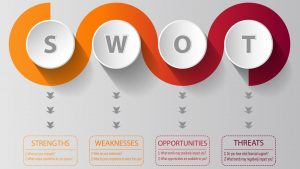Some of us know we want to be our own boss the moment we ask ourselves the question, “what do I want to be when I grow up?” Others of us stumbled into entrepreneurship through career changes, employment shake-ups, and chance. However, regardless of the field or industry, every successful business starts with a great idea. It may change as we move through the ideation process, but the core of any endeavor is the thought that went into the first idea.
A great business idea is what keeps you up at night as you strategize, or gives you the courage to network and pitch for funds. Yet, it is still only the first step in your journey to business success. Each month, over 540,000 business are established, and each started with an idea. However, their success depends on the steps taken after that. So, if you know you have an excellent business idea, read on for steps you can take to develop it into a viable business.
Ask Yourself “Why”


Find out the “Who”
Once you know why you are doing this, begin to ask questions that shape who your audience is. Who will benefit the most from what you offer? You can do this by seeing who interacts with your potential competitors, conducting market research, sending out surveys, and even creating some test products or services to try out with potential customers. Before you jump into the world of entrepreneurship, know whom you are serving so you can craft messages that directly appeal to those individuals.
Discover How You are Different, and Capitalize on It
Now, to be truly successful, you have to understand who your competitors are. Are their offerings the same as yours, or are they different in some way? What type of branding do they have? How do they package and deliver their product or service? Finally, how will you set yourself apart? To genuinely understand where you fit in, you have to study the competition. Begin to figure out how you can carve out a niche and capitalize on it. You have to start to define your own offering, branding, and overall company voice, and taking a look at the competition can help you begin to do this.
Conduct a SWOT Analysis


Begin Planning for Implementation
Now, it’s time to get practical. How much is your product or service going to cost? How will you deliver the materials to your clients and customers? Do you need a brick and mortar store or just an e-commerce site? How much startup capital do you need? It is time to begin thinking of the actual steps it will take to implement your idea. What is your timeline? When will you meet with investors? These are all things you should begin thinking about as you start to develop a business plan and a launch timeline. Take as much time as you can to think of every necessity when it comes to taking your idea from the brainstorming phase to launch.
Final Thoughts
Everyone has ideas and dreams. However, it takes a determined and driven individual to transform them from abstract thought to a finished product. Launching a business does not happen overnight, and it is true that 50 percent of companies fail within the first two years. However, through carefully examining your ideas and planning for their strengths and weaknesses, you can ensure your endeavor has a greater chance of success in the long-run.






